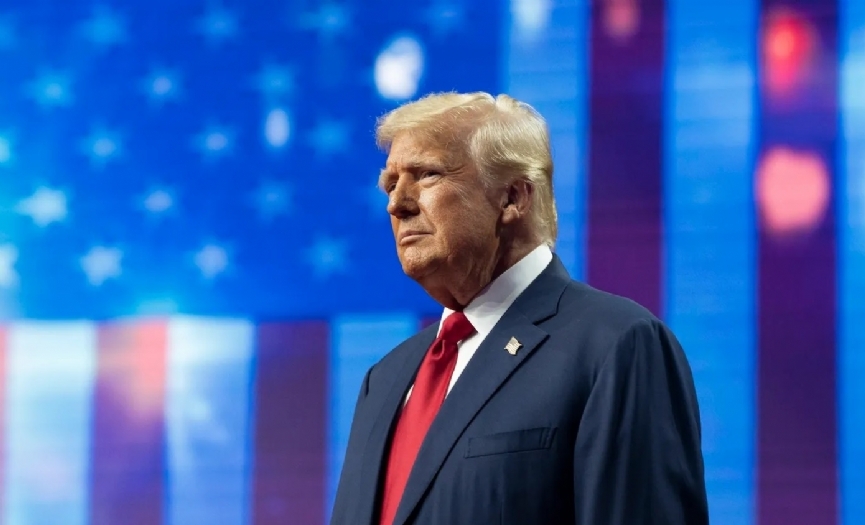
A postmodern leader analysis and the Nobel Peace Prize

While the world focuses on the peace agreement signed in Egypt, US President Donald Trump is also discussed about his failure to receive the Nobel Peace Prize.
Donald Trump , has brought the horrific two-year war in Gaza to an end with the help of Turkey, Qatar, and Egypt, brought an end to the suffering of the Gazan people and provided the return of Israeli hostages to their homes.Most importantly, he brought the century-old conflict back to a resolution decades later with a peace plan that would resolve it, even if only in the medium term, with the support of the entire world.
The world is now asking how Donald Trump, a narcissistic character with a history with gray issues, coldness towards democracy, and authoritarian tendencies, suddenly found himself on the verge of receiving the Nobel Peace Prize.
Yet, in his first foreign policy speech in Washington during the 2016 election, Donald Trump declared, “Unlike other presidential candidates, war and aggression will not be my first instinct.” He added, “A superpower understands that caution and moderation are a true sign of strength.”
Despite his lukewarm support for the invasion of Iraq and his enthusiastic patriotic efforts to punish those responsible for 9/11, he would later call it “the worst decision ever made.”
In May, while condemning the neoconservatives’ “fiascos,” he said: “I want to believe in a future where people of different nations, religions, and beliefs build cities together instead of destroying each other.”
It seems Trump is not a big fan of war. While he has bombed Iran and attacked ships carrying drugs from Venezuela, he largely sees war as a waste of time and money. However, he believes that using the same time and money to build properties along the Gaza coastline is more rational.
Trump's apparent and, for now, success can be attributed to a style that departs from traditional leadership. In line with the postmodern movement, it is an unpredictable style that centers on personal relationships and disregards diplomatic norms.
He overcomes the bottlenecks of traditional diplomacy with this style. The people of the postmodern world, which influences leaders, are fed up with the status quo. They are convinced that political correctness benefits neither them nor the world.
Especially the less educated and lower-middle-class segments, who have become impoverished due to globalization and have begun to see themselves as "losers," have embraced policies like Trump's, aimed at shaking up the established order, breaking established practices, and achieving quick results.
Another unique aspect of Trump is his attempt to manage foreign policy with a "businessman" mentality. He views diplomacy as a "deal," focusing not on sentimental ideals but on mutual gain, on "win-win." He pursues a different kind of leadership than leaders like Obama, who is focused on talk, or Biden, who is bound by tradition but both fail to deliver results.
He presents a very different profile in relations with Arab countries, which have been the Achilles' heel of US foreign policy to date. He has successfully signed significant agreements with Arab leaders, particularly those of Saudi Arabia and the United Arab Emirates, while capturing their fear-driven pragmatism stemming from their fear of Iran.
Furthermore, by leveraging his country's power and issuing military threats, he cultivates the image of a "strongman" and drives his interlocutors to the point of surrender.
The famous American author and journalist Thomas Friedman says of himself:
“I can describe Trump’s approach as follows:
‘I don’t care who you are; I will judge you by your actions. If you meet my needs and desires, you’re wonderful; if you stand in my way, I will make you pay the price.’ Democrats are generally not very good at combining moral indifference with forced diplomacy, even in the name of peace. This is Trump’s nature. Therefore, Middle Eastern leaders see him as one of them.”
If a true and lasting peace is achieved in the Middle East, ending decades of war, bloodshed, and chaos, and especially if political, social, and economic breakthroughs are made in the region, under the supervision and assistance of the US and some other countries, leading to the establishment of a stable Palestinian State, Trump should be entitled to not one, but multiple Nobel Prizes.
However, Trump’s failure to demonstrate the same behavior at home while pursuing a unifying and peace-oriented policy globally is perhaps another unknown of his unique profile.
Tampering with the Constitution, defying court orders, threatening Democratic states with military force for their failure to prevent illegal immigration, conducting an unimaginable strategy of discrediting former Democratic leaders and therefore their voters, pursuing anti-vaccine health policies and most recently, his renaming of the Department of Defense as the "Department of War" all indicate that, questions remain about him.
Therefore, while Trump pursues a pragmatic policy globally and assumes a unifying role for political and commercial interests, he may be irreversibly widening existing cultural and ideological rifts within his own country through his populist and sometimes harsh rhetoric and polarizing attitudes.
According to Trump's profile, what matters in foreign policy is interests. In domestic politics, it's identity politics and, thanks to this, his pursuit of perpetuating his power through elections…
We will continue to monitor Trump with great attention.
For, whether successful or not, he has already become by far the most eccentric and controversial leader of the 21st century.
Our sole wish is that he succeeds on behalf of the survival of mankind and lasting peace...
Related News













